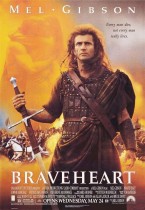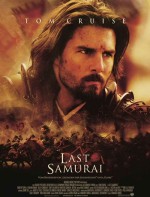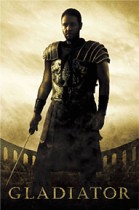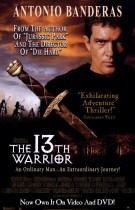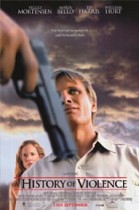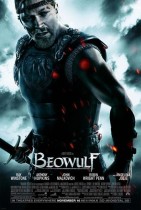Robin Hood (2010)
Synopsis
Robin Hood is the “story of how the man became the legend”. It provides ample opportunity to examine the King archetype, the importance of initiation of boys at the hands of mature male elders and the impact one man and his unrelenting integrity can have on the future of the world.
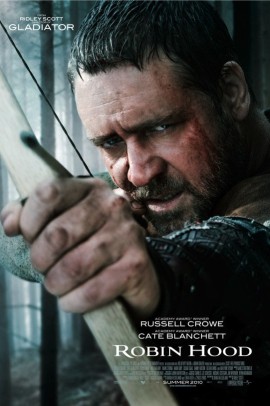
| Genre | Action, Adventure |
| Production year | 2010 |
| Director | Ridley Scott |
| Male actors | Russell Crowe, Max von Sydow, William Hurt |
The King archetype and medieval gang culture
by Eivind Figenschau Skjellum
Ridley Scott’s take on Robin Hood is ripe with material serving the man looking to grow, but in watching it, there were merely two things which I felt a burning desire to communicate to you. That is why I will make this a bitesize review and choose not to focus much on the character of Robin Longstride himself.
Returning home the Loxley sword
King Richard’s crusade is returning home, looting its way through the French countryside. Richard’s regal splendor has withered and the blessing of his presence seems to have disappeared. Robin Longstride addresses the probable source of this in one scene: The murder of thousands of innocent muslim civilians made God leave them and King Richard’s Axis Mundi function was thus broken.
His honesty (it’s a sign of his integrity that he would speak the truth even if it was to the detriment of a King’s good standing) lands him in the pillory with his friends (though Richard seems to enjoy his forthrightness), from which they escape when chaos erupts in the wake of Richard’s death in battle.
They head for the sea only to encounter an ambush of the English knights who were entrusted with the task of returning the crown home. In the hands of a dying Sir Robert Loxley is a sword he took from his father before leaving for his crusade some ten years ago. This dishonorable act has been weighing on his mind and he wants Robin’s help in returning it home to his aging father. There is the sense here that the sword is a symbol of the male lineage and we understand that Sir Robert can not die in peace lest he knows the sword will return to its rightful lineage.
Robin vows to return home the sword without realizing that in so doing, he is pitting himself in the middle of a sinister plot to usurp the crown from the incompetent man who is about to become the new King.
The Shadow King John
Robin and his friends soon find themselves en route to England under stolen identities and as they approach the other shore, the net starts closing around them. Before they know it, they make their faces known as the unwilling harbringers of gloom; Richard is dead and his arrogant and immature little brother is henceforth known as King John.
Not fit for kingship, John carries none of the good qualities that any strong King must have. The King’s main role archetypally is to live according to the Tao, Dharma or Ma’at, and John does no such thing. His divine transmission is non-existent and he is merely playing out his own inner wounds. The inner landscape of a King soon makes itself known in the physical kingdom he governs. England is a about to enter darkness.
John is more interested in fucking his French lover than being King. We also observe how uncomfortable he feels around his mother. These are signs of a boy who has not yet transitioned into manhood and who is still bound by the feminine. A man who is threatened by his mother tends to be so because he has poor psychological boundaries – he has not travelled his hero’s journey. The Warriors defending his psychic kingdom are weak and he tries to compensate with scheming and paranoia. John’s inner masculine archetypes are in disarray.
John has no integrity, he is not true to his word. He is a conniving man who is inherently untrustable. That is the first thing that struck me about this movie – the way John’s bipolar shadow King (tyrant/weakling) destroys England’s chances of a future and lays her boundaries exposed to attack from surrounding kingdoms.
The lost boys of Sherwood Forest
When Robin finally arrives in Nottingham to the widowed Marion Loxley and Robert’s father Sir Walter Loxley, England’s fate already seems sealed due to the dealings of the shadowy Godfrey (displaying qualities of the Shadow Magician in his manipulation of England’s court). There is much to be said from here on out. We could look at the good qualities of Robin Longstride, his presence and integrity.
We could look at how those qualities naturally open up Marion, without needing cheesy pickup lines or the art of seduction. We could also look at how Robin’s mission comes into focus and his inner wounds come healed when it is made clear to him that the father he barely knew was nothing of the cretin that he thought he was, but a great man – a champion of the people.
What I will look at, however, is the boys running around in the forest. They plunder Marion’s stock of grain, much to her dismay. The boys of Sherwood are medieval gang culture. When the fathers disappear from society, boys take to the woods – be they urban or those of Sherwood – to try and find meaning in their lives. But boys cannot initiate each other. The chaos inherent in gang culture is a sign of the lack of the King archetype’s ordering function. They have not been given inner psychological structure because they haven’t received blessing from an elder King.
This truth is embedded into the fabric of the Universe: Only mature men – elders – can initiate boys. And these elders must be strong in the King archetype. When the leader of a nation is weak in the King archetype, the young men he takes to war always suffer horribly. Soon they find themselves in the jungles and trenches of the leader’s unprocessed inner truama.
And when they return home with dismembered bodies, they are not honored or grieved, because in so doing, the leader would have to feel his own wounds, which he cannot – for it terrifies him. (See now the importance of self development?!) And when fathers go away – be it on a crusade, to jail, to the ethereal realms of their disembodied intellectual musings or to their sixth day working overtime – boys start taking their destiny into their own hands.
There is a strange scene in which Lady Marion leads the boys of Sherwood into battle to support what has now become a major battle fighting off the French forces who are trying to win a beachhead on the English shore. No matter how brave her efforts may be, there is something pathetic about it. Watching this scene, I felt it in my bones that a woman cannot lead lost boys.
They need a man for that job. It’s as if the boys ride after the Lady only because she knows the way to Robin, the archetypal King for which they yearn. They aren’t really following her lead. This statement has nothing to do with sexism or gender bias – it has to do with submitting to the natural laws which made us. And deep down, we know this is true. (Although the number of people today who seem oblivious to this does concern me).
Conclusion
Robin Hood is a good movie. It’s not of Gladiator calibre, but especially its portrayal of the father-son-relationship and the lack of it, both on a micro- and a macro-level, make it interesting viewing (realize that the archetypes of father and King are closely related). It comes recommended.
Powerful ideas from Robin Hood
- A King whose actions go against the divine will of the Cosmos will lose his Axis Mundi and probably die
- A King's inner landscape manifests in the kingdom he governs
- Only male elders can initiate boys
- Unfathered boys take to the Sherwood Forests of the world, there to live out a twilight existence until a true elder comes among them.
- To attract a good woman, a man needs only be a good man with presence, appreciation, integrity and a mission to call his own. Nature takes care of the rest
- Rise and rise again, until lambs become lions. This is personal advice for your path through life.

